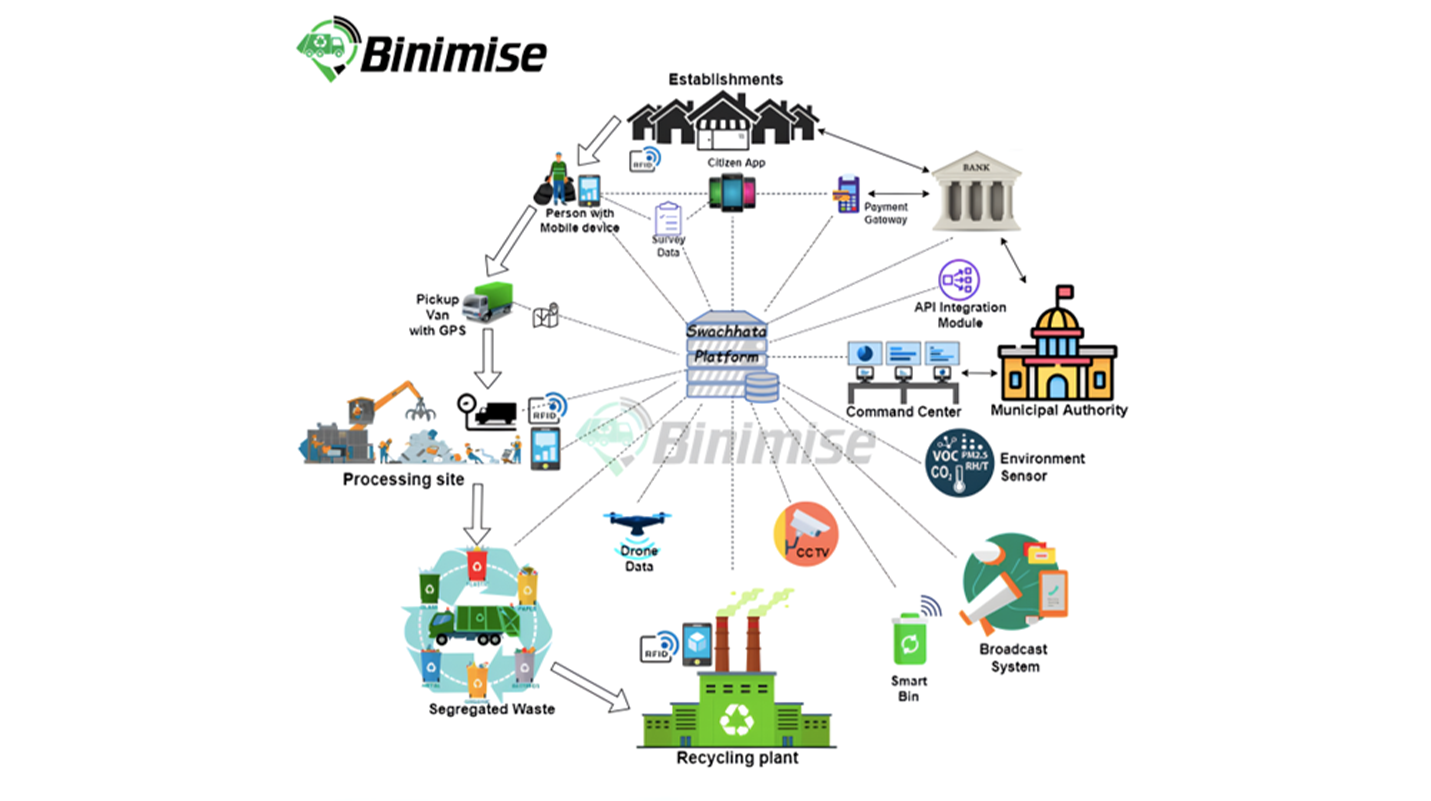Recent News
-
 May 12, 2025
May 12, 2025 -

-


Cities and businesses across the globe are facing a common challenge — increasing waste generation and outdated waste management systems. Traditional waste collection is inefficient, costly, and lacks transparency. That’s where smart waste management comes in — a revolutionary, tech-enabled approach that empowers municipalities and private waste contractors to monitor, process, and optimize solid waste collection in real time.
Smart waste management systems use digital tools like IoT waste sensors, GPS vehicle tracking, and real-time data analytics to automate and improve the entire waste lifecycle. From smart bin monitoring to route optimization and centralized dashboards, every step becomes measurable and efficient.
Instead of sending garbage trucks on fixed schedules, waste collection is triggered only when bins are full, reducing fuel consumption, manpower, and operational costs.
Municipal solid waste management is complex. Manual systems make it hard to ensure timely pickups and cleanliness. Smart municipal waste management platforms solve this by offering:
These tools lead to cleaner cities, greater accountability, and improved Swachh Bharat performance scores.
Private solid waste collection agencies often manage multiple sites — from housing societies to malls, hospitals, and industries. Without a centralized system, tracking performance is difficult.
This improves service quality, client retention, and scalability.
The most efficient platforms combine technology with usability. A strong smart waste solution will include:
These features make waste collection data-driven, scalable, and eco-efficient.
Implementing a smart waste system promotes:
Smart systems also help align with ESG goals, green certifications, and national waste management compliance.
Smart waste management is no longer optional. With rising urban waste and strict environmental regulations, cities and businesses must digitize their waste operations. The benefits are clear:
If you’re ready to upgrade your municipal or private waste operations, now is the time. Binimise offers a robust, fully integrated smart solid waste management platform trusted by public and private sector leaders.
Book your free demo today and discover how tech can make your waste system smarter, cleaner, and future-ready.